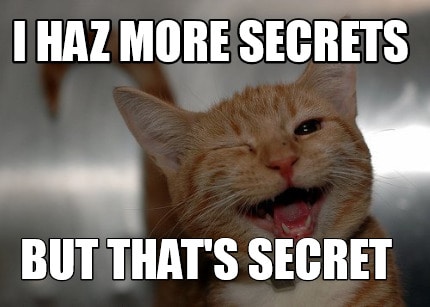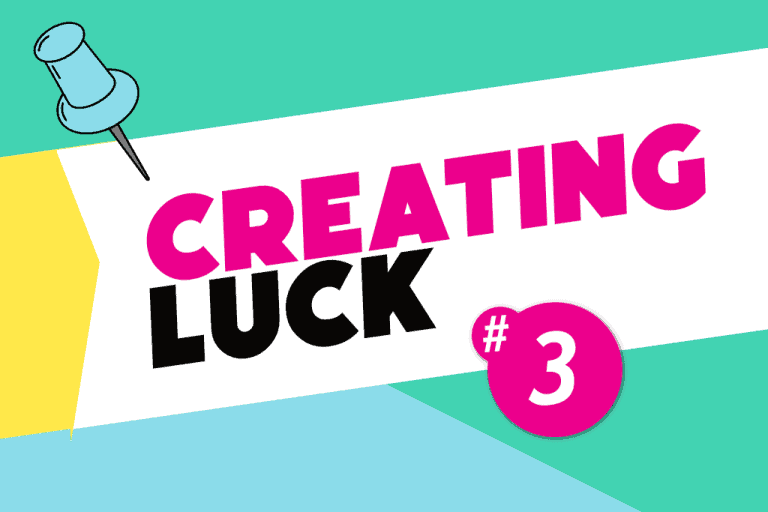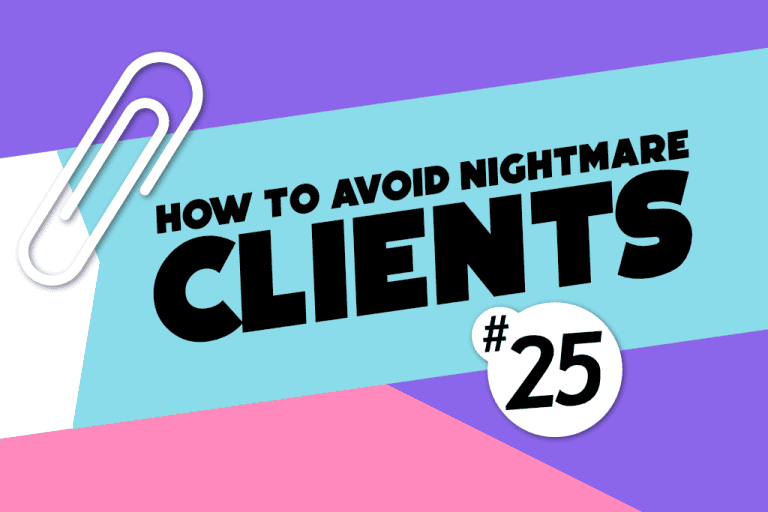Newsletter #2 – The Scenius Effect
“Creativity is not a talent. It is a way of operating”
—John Cleese
Hey everyone,
As I dig deeper into what freelancers really want to know about creating a sustainable AND enjoyable business—a question that keeps coming up is:
“What’s the one thing you wish you’d done sooner when you started out?”
And my answer is always NETWORKING
But not with everyone.
You’ve got to be strategic about it.

This is for 4 reasons:
1) You don’t want your social feeds to get cluttered with crap if that’s where you’re getting business from
2) You want to build a tight network of peers that can work as a lead machine to drive work your way, cheer you on when you need it, and help eliminate the feast/famine cycle that we all dread so much
3) Your network is your shoulder to cry on when things go pear-shaped, somewhere to ask questions in a safe space, and a place to find valuable new ideas for your business
4) You want to find places where your competitors AREN’T
To grow as a freelance writer, you’ve either got to find a network, or make your own
Think of this network as your Scenius
The term “Scenius” was initially coined by musician Brian Eno (and yes I know, I am both old and deeply uncool).
Eno described his concept as being an “ecology of talent” — or a group of creative people with similar interests and goals coming together to create a community where ideas and innovation happen. A kind of collective genius, if you will.
And it’s a concept you can easily apply to your freelancing business.
It’s essentially a “cool kids” club.
Only it’s YOUR club.
But you need to put the work in to build it, because it most likely won’t appear by itself.
Creating your Scenius is an organic process, and you need to find the people to make it happen.
Here’s what you’re looking for:
- People that are serious about their craft, but are also free with sharing their knowledge and contributing to each other’s success
- People at the same level of business as you, or slightly ahead
- People that work in the same industry as your ideal clients
- People that, y’know, you like!
When you’re looking at some of the top freelancers in your space, I guarantee they have created a very strong Scenius to get where they are.
They just don’t talk about it—because it’s their secret weapon.

So. How do you get what they’re having?
- Join online groups, masterminds, meetups, Slack channels, or any other organized spaces where your peers might hang out.
- Take some paid courses to get in front of people that can introduce you to their own Scenius. I think of this as “buying into” someone else’s network. The wider you cast your net—the more people you can meet, and the stronger your Scenius will become.
- Look for the people that resonate with you personally. Chat with them regularly. Ask questions. Create your own Slack channel. Invite them! Be likeable and helpful. Bounce ideas around. Share stuff.
- Set aside time each day (even if it’s just 10 minutes) to engage with the people in your network on your favorite social channel. Notice who else is commenting on these threads—if you enjoy reading specific people’s comments, chances are they’re a good fit to add to your network too.
The more you work at creating your ideal network, the more you’ll get out of your Scenius on so many levels.
The result? You open the door for more work, more personal and business growth, and more interesting opportunities.
ASK ME ANYTHING
Your agony aunt space to get whiny, get shouty, and get help
Q. If a company has in-house writers, will they still hire freelancers?
—Lorelle
A. Yes.
But you probably want a slightly longer answer than that 🤣
Many companies often have overflow work that they need a hand with, so it is ALWAYS worth asking.
Also, some companies are on a hiring freeze right now with thousands of layoffs going on.
But they might well be looking for freelancers to fill the gaps in upcoming projects or initiatives.
I know this for a fact because of an email I got from a big tech company this morning—so those opportunities are definitely out there.
Start pitching!
Q. After reading last week’s newsletter, I’m curious—what does your own creative work in the morning look like? Creating content like this newsletter? Or something else?
—Ben
A. Honestly, my creative work hour is about doing anything I feel inclined to do that’s related to my own business.
I write my newsletter in my Sunday hour so I can let it sit overnight, in case it’s a steaming pile of 💩 that I don’t want to send out on Monday.
For other days, I have an endless to-do list for my own projects, like developing products, writing blogs, creating branded images for social, gathering notes from experts or books for future use etc.
So, basically I let my creative brain do whatever it wants for that hour, as that’s how I find I get the most out of my time.
APPS & RESOURCES
Useful tools to check out for your life & business
- Tweepsmap – Unclutter your twitter account with this handy FREE app that can flag all those pesky inactive accounts you follow, so you can unfollow them and make more room in your feed
- GoFullPage – the best Chrome browser extension to take a screenshot of a full page – ideal for swiping all those website pages and sales pages!
PROCRASTINATION STATION
Take a 5 minute break (you’ve earned it!)
- Bubble Pop – an oddly satisfying site that lets you virtually pop bubble wrap
- 2022 Comedy Wildlife Photo Awards Winners – your yearly dose of weird and wacky animal photography
——————
THANKS FOR READING!
Anything you’re stuck on? Need some specific advice about your freelancing biz? Just hit reply to this email—I reply to everything 🙂
P.S. If you enjoyed this newsletter and want to support it, you can:
- Forward this email to a friend and invite them to sign up here
- Buy me a coffee ☕






